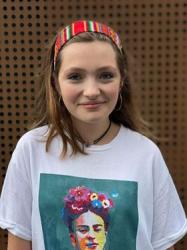
The most recent COVID-19 research paper produced by Icelandic firm, deCODE Genetics, has been published in the prestigious New England Journal of Medicine. The analysis of data collected from Icelanders screened at the company’s drive-through screenings and by the Directorate of Health between March 13th and April 1st was released earlier this morning.
The publication of the paper in the New England Journal of Medicine demonstrates the current international focus on Iceland and deCODE’s COVID-19 research. Although many of the paper’s findings will not come as a surprise for Icelanders who have been keeping up-to-date with deCODE’s work, the research is sure to garner much international media interest. As deCODE’s CEO, Kári Stefánsson, revealed to the Grapevine in an interview at the start of April, transforming Iceland into a case study for the global scientific community has always been one of the goals of his pioneering virus screening programme. “I felt that it was necessary, not just in Iceland but for the world in general, to have a population where you knew the spread of the virus in the general population,” he explained to us.
The paper offers further evidence for several trends spotted earlier on in the Icelandic outbreak. It confirms that men are more susceptible to the virus than women. In the targeted health service virus screenings 60.5% of men tested positive in comparison to 55.1% of women. The paper also re-establishes the finding that children not only exhibit milder symptoms, they are also less likely to catch the virus at all. No children under 10 years old tested positive at deCODE’s drive through screenings. The targeted testing revealed 6.7% of children under 10 tested positive in comparison to 13.7% of older individuals.
The paper also suggests that the Icelandic COVID-19 epidemic has entered a second stage. Earlier 65% of confirmed cases were people who had recently travelled abroad but more recently this has dropped to 15.5%. In the current second phase, the principal route of transmission is through family members. Around half of all cases on April 1st were transmitted by family members. The second largest category infection sources is “unknown” and more people are now catching the virus through work than travel. The number of people catching the virus through involvement in Iceland’s tourism industry has been for the most part very low throughout March.
The success of the Icelandic authorities’ attempts to limit the virus’ spread is also highlighted in the paper. It states that, “the frequency of the SARS-CoV-2 infection in the overall Icelandic population was stable from March 13 to April 1, a finding that appears to indicate that the containment measures had been working.” However, despite this optimistic view, deCODE’s experts stick to their earlier warning that if Iceland wishes to contain the virus in the future, testing and contact tracing are of vital importance. Kári previously told us that he believes around 50,000 to 100,000 tests will be needed to keep the virus in check.
To find out more about deCODE’s COVID-19 screening programme and research read our recent interview with the company’s formidable CEO, Dr Kári Stefánsson.
Note: Due to the effect the Coronavirus is having on tourism in Iceland, it’s become increasingly difficult for the Grapevine to survive. If you enjoy our content and want to help the Grapevine’s journalists do things like eat and pay rent, please consider joining our High Five Club.
Buy subscriptions, t-shirts and more from our shop right here!















